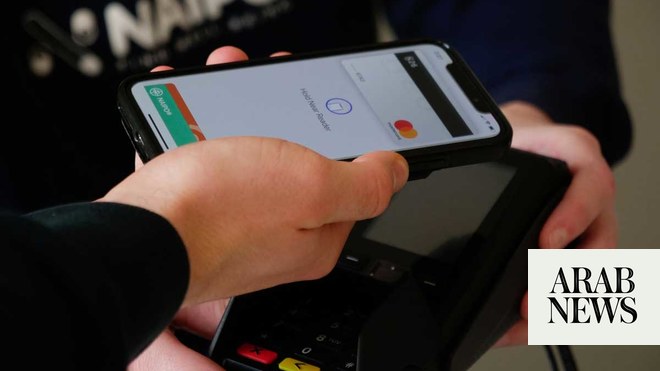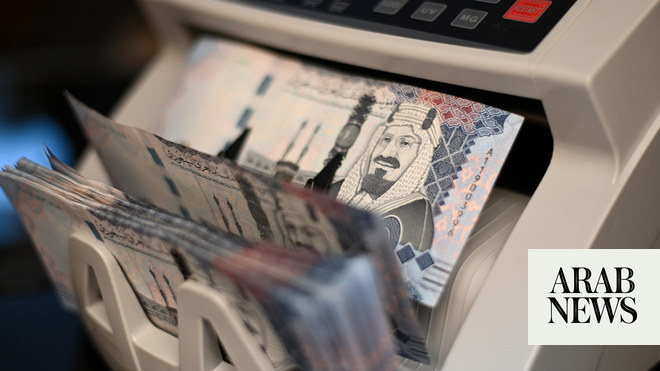
RIYADH: Cashless payments in Saudi Arabia are expected to surge by 7.6 percent in 2024 to SR550 billion ($146.8 billion) as compared to SR511.5 billion the previous year, a report said.
The report issued by GlobalData, a London-based data analytics and consulting company, projected the Saudi card payments market to grow at an annual rate of 6.4 percent between 2024 and 2028 to reach SR705.2 billion.
The uptick comes amid the Saudi government’s push for a cashless society by encouraging consumers to switch to cards for financial transactions.
“While cash has traditionally been a preferred method of payment in Saudi Arabia, its usage is on the decline in line with the rising consumer preference for electronic payments,” said Ravi Sharma, a lead banking and payments analyst at GlobalData.
He added: “The country has a robust digital payment infrastructure, supported by a developing card market and a well-established card acceptance infrastructure.”
Sharma further noted that Saudi Arabia’s government is taking effective steps to enhance the infrastructure in the country by encouraging merchants to adopt at least one electronic payment option apart from cash.
The report, however, added that cash remains an integral part of the Saudi consumer payments landscape, particularly for lower-value transactions, but the usage of hard currency is showing signs of decline.
Promoting digital payments is crucial for Saudi Arabia, as the Kingdom’s Vision 2030 aims to reduce cash transactions and increase the share of electronic payments to 70 percent of all transactions by 2025.
“The (COVID-19) pandemic changed the way Saudi consumers make payments, with an increasing number of consumers preferring contactless payments,” said Sharma.
He added: “Contactless cards have been on the rise in the country with the Saudi Arabian central bank reporting 363.4 million transactions using NFC-enabled mada cards in February 2024 compared to 331.7 million in February 2023.”
In terms of card preference, debit cards dominate the overall card payment space, accounting for 85 percent of the overall card payment value in 2023.
GlobalData pointed out that the government’s financial inclusion initiatives, consumers’ preference for debt-free payments, and prudent consumer spending have resulted in the domination of debit cards in the Kingdom.
“Saudi consumers are gradually embracing electronic payments, moving away from cash, supported by government push, improvements in payment infrastructure, growing consumer awareness, and rising adoption of newer technology like contactless,” added Sharma.
In April, data released by the Saudi Central Bank revealed that payments made through point-of-sale terminals in the Kingdom experienced a significant 20 percent annual increase in February, totaling SR53.72 billion.
The largest portion of POS spending in February was allocated to beverages and food, comprising 15.7 percent or SR8.43 billion.
This was followed by spending on restaurants and cafes, accounting for 15 percent of the total, reaching SR8.02 billion.












